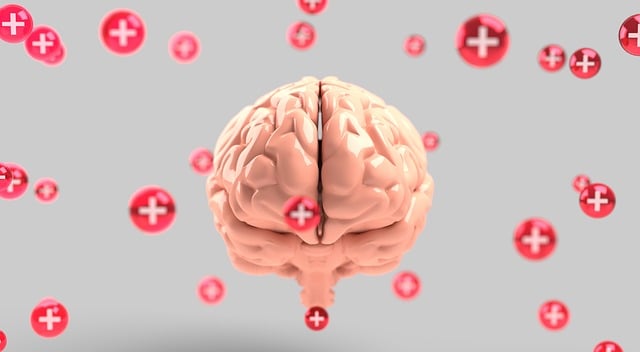Longmont Bipolar Disorder Therapy emphasizes self-care as a key component of managing bipolar disorder, promoting emotional stability through tailored routines. This includes integrating activities like exercise, mindfulness, journaling, and community engagement to reduce stress and enhance quality of life. By personalizing self-care practices, individuals gain tools to manage symptoms, foster resilience, and improve mental health outcomes. Overcoming barriers with consistent routines, accountability, and coping mechanisms supports long-term well-being. Longmont Bipolar Disorder Therapy's holistic approach, including crisis intervention and cultural sensitivity, empowers patients to actively participate in their healing journey.
In today’s fast-paced world, self-care is an essential practice for maintaining mental wellness. This article explores the transformative power of self-care and offers a comprehensive guide to help you navigate this journey. We delve into understanding its profound impact on mental health and provide strategies to identify personal needs, create routines, and overcome barriers. Additionally, we highlight Longmont Bipolar Disorder Therapy as a holistic approach, showcasing how specialized care can enhance self-care practices for long-term well-being.
- Understanding Self-Care and its Impact on Mental Health
- Identifying Personal Needs for Effective Self-Care Routines
- Strategies to Incorporate Self-Care into Daily Life
- Overcoming Barriers and Staying Motivated for Long-Term Practice
- Longmont Bipolar Disorder Therapy: A Holistic Approach to Self-Care Enhancement
Understanding Self-Care and its Impact on Mental Health

Self-care is an essential practice for maintaining mental health and overall well-being, especially for individuals living with conditions like bipolar disorder. It involves taking proactive steps to nurture one’s mind, body, and spirit, ensuring a sense of balance and resilience. In the context of Longmont Bipolar Disorder Therapy, understanding self-care goes beyond mere relaxation techniques; it’s about creating sustainable routines that support emotional stability.
By integrating self-care into daily life, individuals can effectively manage symptoms, reduce stress, and improve their overall quality of life. This might include activities such as engaging in regular exercise, practicing mindfulness meditation, keeping a mental wellness journaling routine, or connecting with supportive communities through mental health policy analysis and advocacy. These practices create a buffer against life’s challenges, fostering a sense of empowerment and self-compassion, ultimately contributing to improved mental health outcomes.
Identifying Personal Needs for Effective Self-Care Routines

Creating effective self-care routines starts with identifying your personal needs. This involves a deep understanding of yourself and what brings you joy, peace, and a sense of balance. For individuals dealing with bipolar disorder or trauma, this process can be transformative. Longmont Bipolar Disorder Therapy offers valuable insights into recognizing the unique triggers and coping mechanisms that contribute to emotional regulation.
Trauma Support Services and Inner Strength Development are crucial components in navigating this journey. By prioritizing self-care, you empower yourself to manage symptoms and foster resilience. Incorporating practices such as mindfulness, exercise, and therapy sessions can aid in healing and provide tools for maintaining emotional stability. Emotional Regulation becomes more achievable when your routine is tailored to address your specific needs and vulnerabilities.
Strategies to Incorporate Self-Care into Daily Life

Incorporating self-care into your daily routine is a powerful strategy to manage and improve mental health, especially for those navigating conditions like bipolar disorder. Longmont Bipolar Disorder Therapy encourages individuals to prioritize their well-being by adopting sustainable self-care practices. It’s not just about taking time for yourself; it’s about cultivating a lifestyle that nurtures both the mind and body. Start with small, consistent actions that align with your unique needs. For instance, setting aside dedicated moments for relaxation through activities like meditation or deep breathing exercises can significantly reduce stress levels.
Additionally, fostering social connections and engaging in regular physical activity are integral components of self-care. Building a support network offers a sense of belonging and provides an outlet for emotional expression. Combining these practices with the principles of mind over matter empowers individuals to take control of their mental health. Effective risk management planning for mental health professionals can guide clients towards healthier coping mechanisms, ensuring they have the tools necessary to maintain balance in their lives and foster resilience against symptoms of bipolar disorder.
Overcoming Barriers and Staying Motivated for Long-Term Practice

Overcoming barriers is a significant step in implementing and maintaining self-care practices for those managing conditions like bipolar disorder. Longmont Bipolar Disorder Therapy often emphasizes the importance of consistent routine and personal accountability. One common hurdle is staying motivated over the long term, especially when coping with mood episodes or during periods of increased stress.
Integrating mental wellness journaling, regular exercise guidance, and conflict resolution techniques can offer valuable tools to navigate these challenges. Journaling allows individuals to track their emotions, identify triggers, and set achievable self-care goals, fostering emotional well-being promotion techniques. Consistent movement, tailored by exercise professionals, improves mood and reduces anxiety while providing a healthy outlet for stress release. Additionally, learning conflict resolution skills enables individuals to navigate interpersonal challenges more effectively, minimizing additional stressors that could hinder self-care progress.
Longmont Bipolar Disorder Therapy: A Holistic Approach to Self-Care Enhancement

Longmont Bipolar Disorder Therapy offers a holistic approach to self-care enhancement, addressing the physical, mental, and emotional well-being of individuals dealing with bipolar disorder. This comprehensive strategy incorporates various techniques such as self-awareness exercises and crisis intervention guidance, tailored to each patient’s unique needs. The practice recognizes that managing bipolar disorder effectively requires more than just medical treatment; it necessitates a supportive environment that respects cultural sensitivity in mental healthcare.
By integrating these diverse elements, Longmont Bipolar Disorder Therapy fosters deeper self-understanding and coping mechanisms, enabling individuals to navigate the complexities of their condition with greater resilience. This holistic perspective not only improves overall quality of life but also empowers patients to actively participate in their own healing journey.
Self-care is a powerful tool for managing mental health, and as demonstrated by Longmont Bipolar Disorder Therapy’s holistic approach, integrating it into daily life can lead to significant improvements. By understanding our personal needs, developing effective routines, and staying motivated through barriers, we can enhance our overall well-being. Embracing self-care practices not only empowers individuals but also allows them to navigate mental health challenges more effectively.









